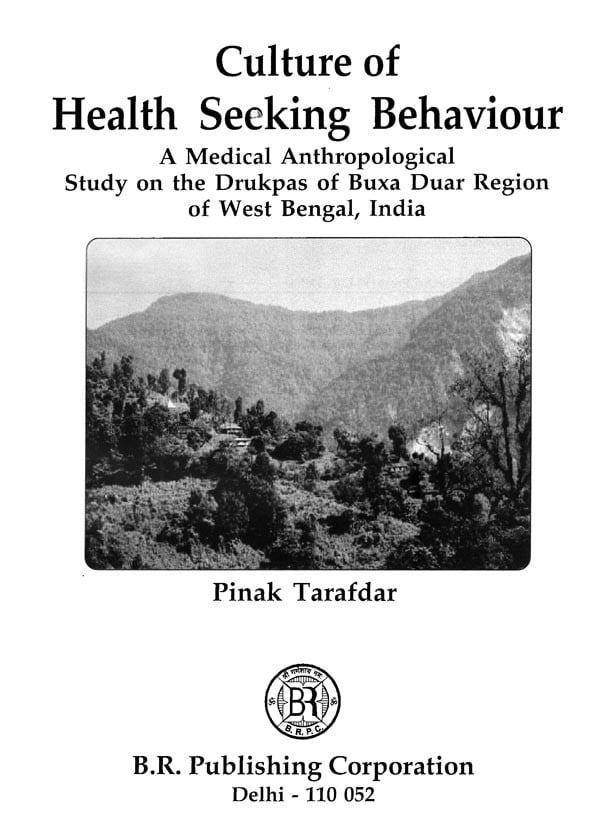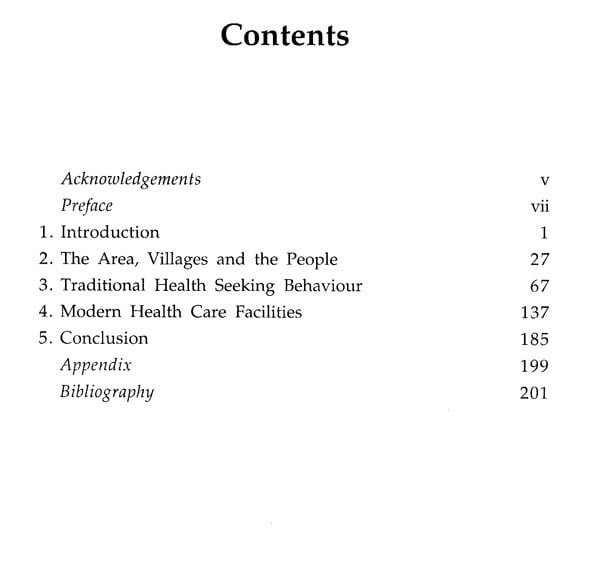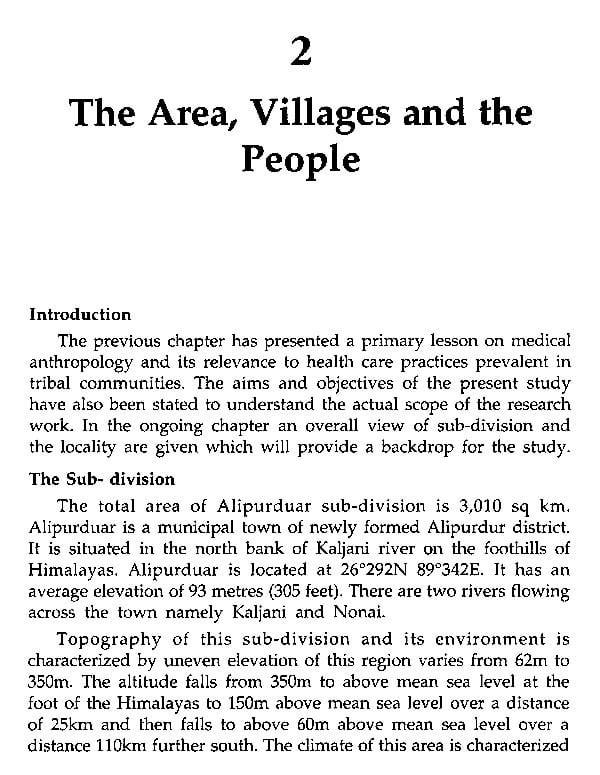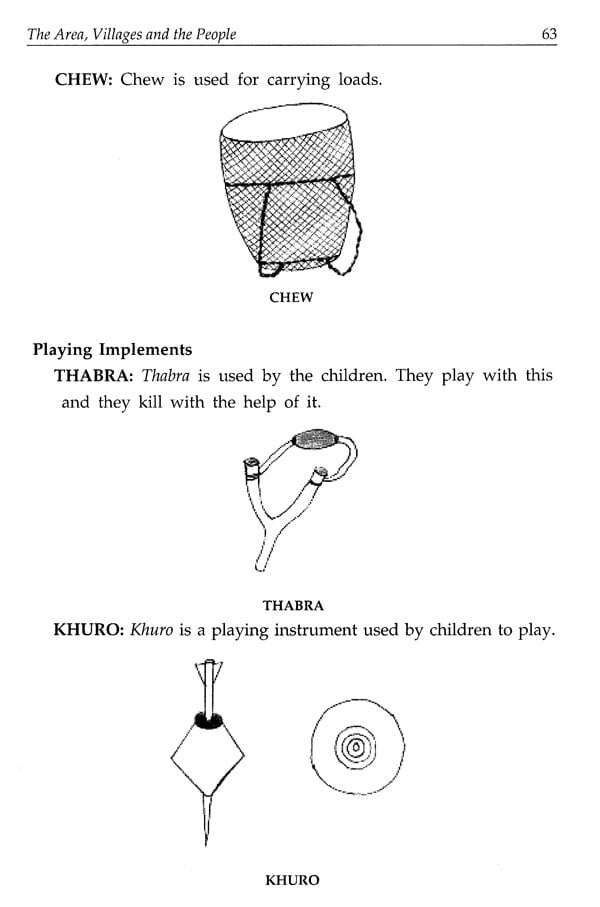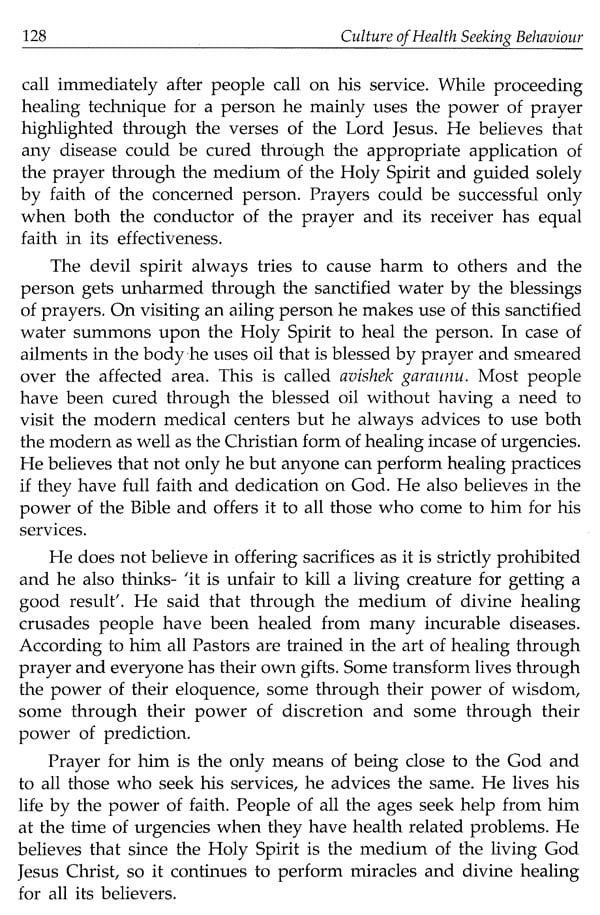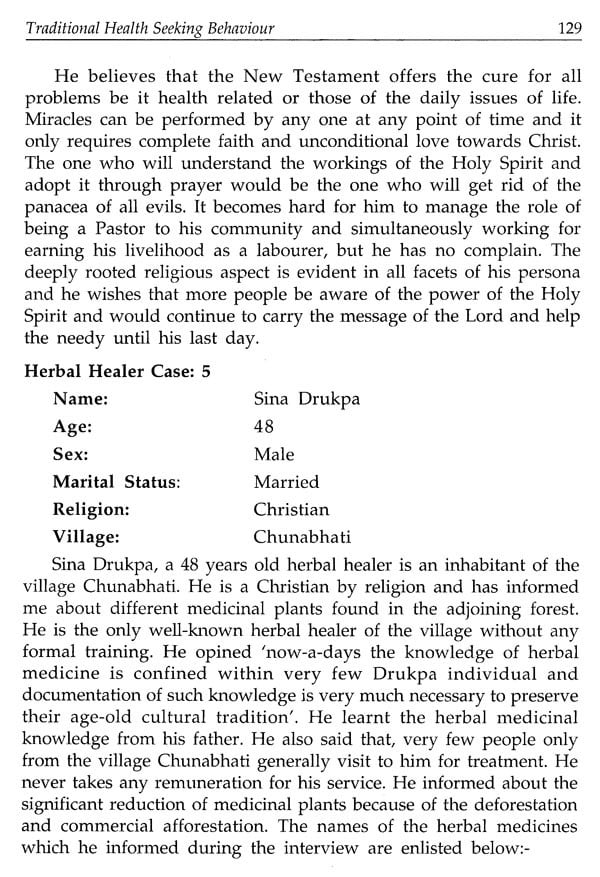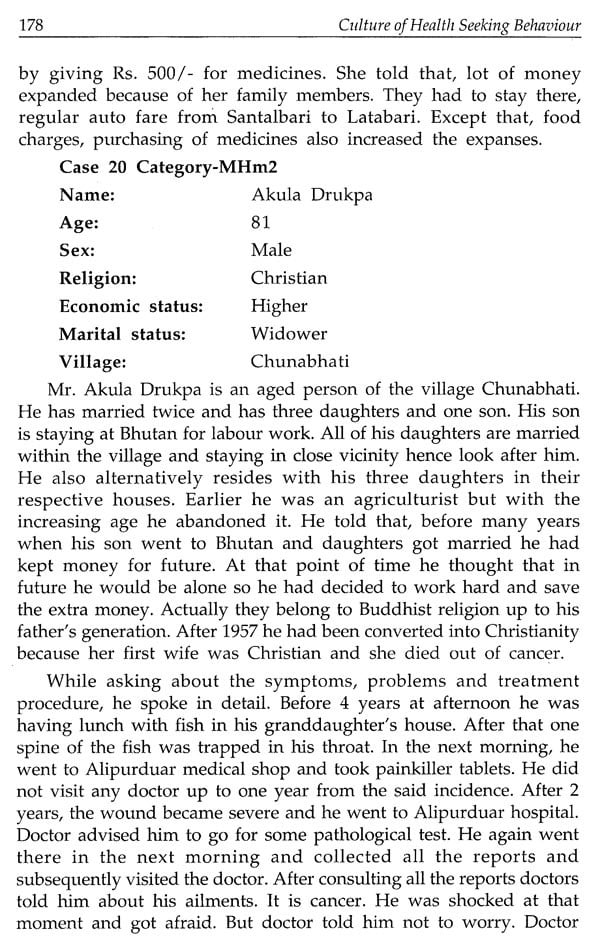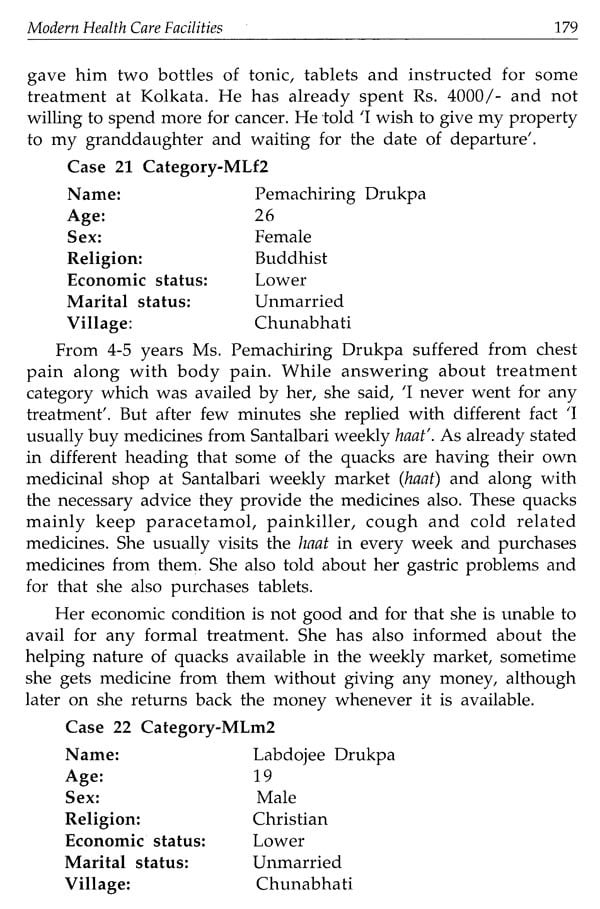About the Book The book entitled vulture of health seeking behavior explores the process of searching and availing the health care services prevalent in a culture and it also examines the subsequent transformation in virtue of modernization Explanatory model of an individual belonging to a specified culture plays a determining role for choosing appropriate health seeking behavior. The said behavior is actually a decision making process governed by an individual of a particular culture. Every culture has its own dimension of health care system and it is characterized with self-sufficiency until it experiences inevitable interaction with the enter world. There is a consensus agreement that the health status of the tribal population is very poor specifically whenever they have been exposed and interacted with other complex culture. The present study has been conducted among the Drukpa's of Buxa-Duar region and the prime objective of the study is to understand the health seeking behavior of that particular tribal community inhabited in West Bengal, India. This is perhaps the first Endeavour that any sort of in depth anthropological query has been carried out among the Drukpes with special reference to care seeking behavior under the domain of distinctive sub-discipline known as medical anthropology. The study also identifies a unique cultural periphery of adequate resemblance with the neighboring country Bhutan.
About the Author Dr. Pinak Tarafdar is an Assistant Professor since 2005 in the Department of Anthropology, University of North Bengal. He passed his B.Sc. [H] (First Class). M.Sc. (First Class) and obtained Ph.D. in Anthropology from Calcutta University, He was also a centrally administered doctoral fellow of ICSSR, New Delhi. His special areas of research interest are Medical Anthropology, Tribal Studies, Human Rights and Prehistoric Archaeology. He has been actively involved in various academic discourses and associated with many research works since a decade. He has accomplished many research projects sponsored by the University Grants Commission (UGC), Indian Council of Social Sciences Research (ICSSR), Sarva Siksha Mission, Government of West Bengal and University of North Bengal and worked on various ethnic groups of West Bengal and northeastern states, Dr. Tarafdar has published around thirty research articles in edited books and journals.
He has also published a book (monograph) entitled 'Cultural Dimensions on Tribal Health' in 2010. He was a Convenor of a session on Tribal Health' at prestigious 17" world Congress of International Union of Anthropological and Ethnological Sciences (IUAES) on "Evolving Humanity, Emerging Worlds" held at Manchester, U.K (2013). He also presented a paper in the 16 World Congress of IUAES held at Kunming, China (2009). He acted as a Managing Editor of the North Bengal Anthropologist Annually (2012-2013), the Journal of the Department of Anthropology, University of North Bengal. He chaired and co-chaired sessions and presented numerous papers in the various national and international seminars, symposiums, and conferences.
Dr. Tarafdar is a life member of Indian Anthropological Association, Indian National Confederation and the Academy of Anthropologists. He was also the member of the Programme Advisory Committee (Tribal Affairs), All India Radio, Siliguri. He also remained the member of International Union of Anthropological and Ethnological Sciences (IUAES).
Preface The book entitled culture of health seeking behavior delineates the concept of searching health care services irrespective of its traditional or modern way of practices. It conceptualizes with the various preventive and curative health care measures prevalent in different cultures along with its subsequent development in the virtue of modernization Explanatory model of an individual belonging to a specific culture plays a determining role for choosing appropriate health seeking behavior. The said behavior is actually a decision making process governed by individual or house hold behavior. There is a consensus agreement that the health status of the tribal population is very poor specifically whenever they exposed and interacted with other complex culture. Although each culture has its own dimension of health care system and it is characterized with self-sufficiency until it experiences inevitable interaction with outer world.
The age old health care practices of a simple society generally do not contain sufficient knowledge to cope up with emergent ailments incepted after the communication with the complex or modern societies. So the persisting health seeking behavior would be insufficient and inefficient for initiating remedy to such ailments which has never been existed before.
Introduction Health is a prerequisite for human development and is an essential component for the well being of mankind. The health problems of any community are influenced by interplay of social cultural and structural factors. The common beliefs, customs, practices related to health and disease in turn influence the health seeking behavior of a community. There is a consensus agreement that the health status of the tribal population is very much poor and worst specifically after the intervention by the so called modern complex societies having the existence of various critical ailments which are resultant as a curse of the present era. The situation becomes more vulnerable. in the developing country like India.
Medical Anthropology is an area of specialization within the cultural anthropology as a subject matter of medical and health beliefs and practices, or simply "the fusion of the two fields of medicine and anthropology" (Grolig and Haley, 1976). The Society for Medical Anthropology defines it as 'all inquiries into health, disease, illness, and sickness in human individuals and populations that are undertaken from the holistic and cross-cultural perspective distinctive of anthropology as a discipline-i.e., with an awareness of species' biological, cultural, linguistic, and historical uniformity and variation.
**Contents and Sample Pages**
